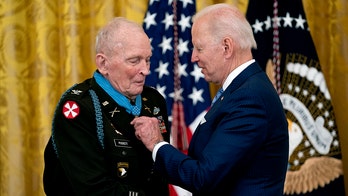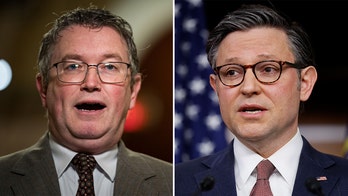President Obama will propose a $10 fee for every barrel of oil to be paid by oil companies in order to fund clean energy transport system, the White House announced Thursday -- although Republicans were quick to declare the plan "dead on arrival" in Congress.
The fee would be phased in over five years and would provide $20 billion per year for traffic reduction, investment in transit systems and other modes of transport such as high-speed rail, the White House said. It would also offer $10 billion to encourage investment in clean transport at the regional level.
Obama is expected to formalize the proposal Tuesday when he releases his final budget request to Congress. However, the proposal immediately faced resistance from Republicans.
"Once again, the president expects hardworking consumers to pay for his out of touch climate agenda,” House Speaker Paul Ryan said in a statement, arguing it would lead to higher energy prices and hurt poor Americans.
Ryan went on to describe Obama’s plan as “dead on arrival” in Congress.
“The good news is this plan is little more than an election-year distraction. As this lame-duck president knows, it's dead on arrival in Congress, because House Republicans are committed to affordable American energy and a strong U.S. economy," Ryan said.
The White House claims the added cost of gasoline would incentivize the private sector to reduce the reliance on oil and to increase investment in clean energy technology.
The plan also saw opposition from advocates for the oil industry, who warned it would only harm consumers.
“The White House thinks Americans are not paying enough for gasoline, so they have proposed a new tax that could raise the cost of gasoline by 25 cents a gallon, harm consumers that are enjoying low energy prices, destroy American jobs and reverse America’s emergence as a global energy leader,” API President and CEO Jack Gerard:
“On his way out of office, President Obama has now proposed making the United States less competitive.” Gerard said.
The Associated Press contributed to this report.




